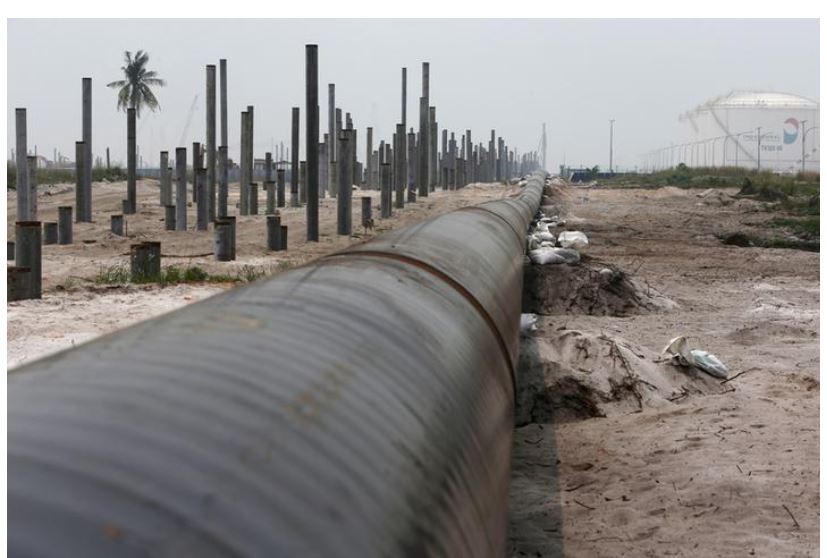
The leaders of Tanzania and Uganda laid a foundation stone on Saturday for the construction of a $3.55 billion-crude export pipeline that would pump Ugandan oil for international markets.
The 1,445 km-project – set for completion by 2020 – will stretch from landlocked Uganda’s western region, where crude reserves were discovered in 2006, to Tanzania’s Indian Ocean seaport of Tanga.
The project will become “the longest electrically heated crude oil pipeline in the world,” said Guy Maurice, Senior Vice President of Africa at Total Exploration and Production.
Total is one of the owners of Ugandan oilfields, alongside China’s Cnooc and Britain’s Tullow Oil.
Tanzanian President John Magufuli, flanked by his Ugandan counterpart Yoweri Museveni, urged the three joint venture partners to speed up construction of the pipeline.
“We don’t need to delay the completion of the project for almost three years. They can do it even night and day to ensure the project is completed as quickly as possible,” Magufuli said.
“Act with big speed and make sure you finish this project before 2020.”
Uganda estimates overall crude reserves at 6.5 billion barrels, while recoverable reserves are seen at between 1.4 billion and 1.7 billion barrels.
Kampala said it picked Tanzania over its other neighbour Kenya as the route for the proposed 24-inch export pipeline because it was a “least cost and least risky” option.
“Tanzania offered several concessions to make the pipeline profitable inspite of the falling global crude oil prices,” said Museveni.
Tanzania agreed to waive taxes, offered to take up shares in the pipeline project and charge a tariff of $12.2 per barrel to make the project feasible, he said.
(Editing by Aaron Maasho)
